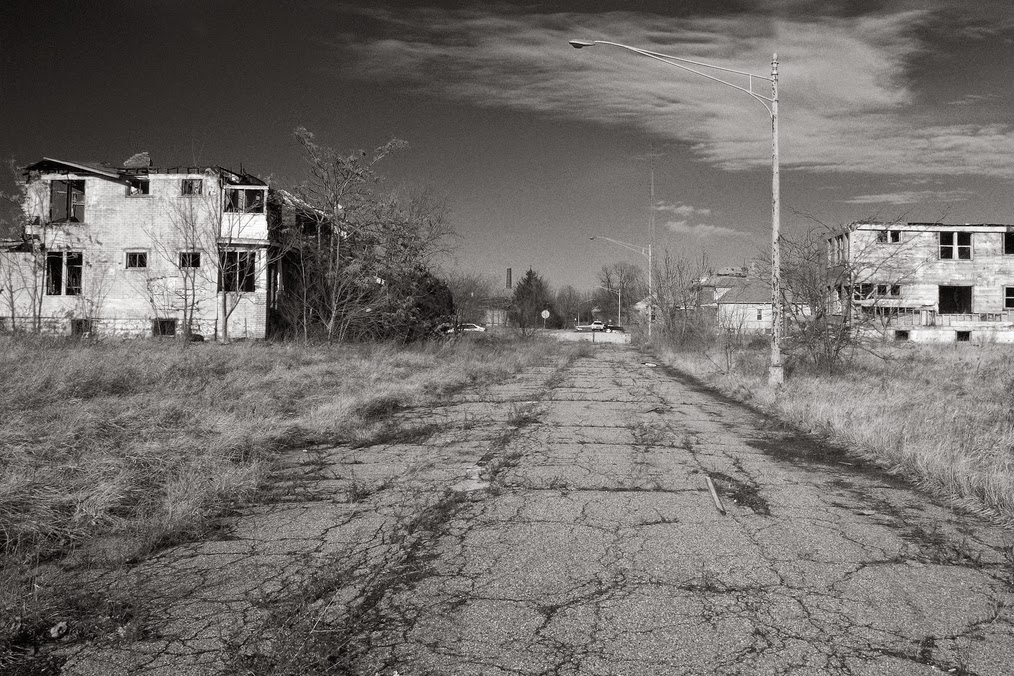Opposite of Heaven
“There are only two kinds of people in the end: those who say to God, "Thy will be done," and those to whom God says, in the end, "Thy will be done." All that are in Hell, choose it. Without that self-choice there could be no Hell. No soul that seriously and constantly desires joy will ever miss it. Those who seek find. Those who knock it is opened.” — C.S. Lewis, "The Great Divorce"
Sometimes you encounter a subject with such frequency during a defined period that you have to admit God must be telling you something. I felt that this week with the idea of hell.
First, Lindsay and I joined a GTW class about C.S. Lewis — this one studying "The Great Divorce." For those not familiar with the book, in it Lewis talks about Heaven and hell in the midst of telling a fictional story of a bus trip between the two. It's an interesting examination of the concepts, and what hell might be like.
For Lewis, the description is Grey Town — a town that seemingly never ends, that feels deserted, that is constantly at twilight, and where people lack connection. It's basically like living your loneliest day for eternity.
On Sunday morning, in our Adult Sunday Community, our subject this week was hell. It's when I looked at that and began reading the lesson for prep that it struck me this was something I probably needed to study and think about. And that also struck me as odd because, aside from those televangelists that use hell like the ultimate weapon, I don't think the modern church spends much time talking about hell.
Sure, we accept that it's there. As Christians we know we don't want to end up there. We know that those that don't worship God will end up there. And, mostly, we don't want to spend too much time thinking about it.
Even in our C.S. Lewis class, the questions for group discussion surrounded what we think Heaven will be like. That's because we don't want to dwell too much on the negative.
But through this experience, it was interesting to think about both the description of hell, and the purpose of hell, and how sometimes we confuse that. The popular notion is that hell is a place of fire and torment, some place you're sent if you misbehave. But is that really the correct notion?
Lewis described hell — or Grey Town in the book — as a lonely place of isolation. The lesson I read talked about hell as being fire and darkness — because fire is something that consumes and is never satisfies and God is light, so hell would be the opposite of God.
Similarly, both the lesson a Lewis' writing clarify the purpose of hell. Lewis' quote from above, which is found in "The Great Divorce," talks about hell being a choice — the choice to step away from God. It's not a punishment for your deeds, it's a punishment for your decision. This is something Jesus talked about in parables in Luke, too. The rich man and Lazarus headed in different directions. Jesus never said the rich man was evil or cruel, he was just focused on the things of the world and living for himself. He lived a life apart from God, and in death he got an eternity apart from God.
In his preface to "The Great Divorce," Lewis says, "I think earth, if chosen instead of Heaven, will turn out to have been, all along, only a region in Hell: and earth, if put second to Heaven, to have been from the beginning a part of Heaven itself."
Hell is a place of eternal suffering and separation from God. It's also a choice. I think when we wrap our minds around that as Christians, it makes our mission — The Great Commission — all that more urgent and vital.




Comments
Post a Comment